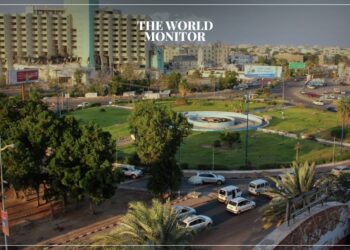Peter Stano, the spokesperson for the European Union’s Foreign Policy Commission, condemned the tragic terrorist attack that occurred in the suburbs of Moscow, known as “Crocus,” on Monday, March 25. During a press conference in Brussels, Stano emphasized that the incident represents a “clear act of terrorism” for the European Union. Regarding the question of resuming counter-terrorism cooperation after the attack, Peter noted that if Russia presents a credible and rule-based international commitment, the European Union is likely not to reject this offer.
On the other hand, Germany affirmed that it maintains its intelligence contacts with Russia, with the German government spokesperson, Steffen Hebestreit, stating that German intelligence agencies continue these contacts. Later that day, Kremlin spokesperson Dmitry Peskov explained that the war on terrorism requires broad cooperation, indicating that no city in the world is immune to terrorist threats.
It is noted that the Moscow terrorist attack took place in the hall of the “Crocus City” complex on the evening of Friday, March 22, where gunmen stormed the building and opened fire on those present, resulting in approximately 137 victims, according to the latest data published by the investigative committee.
The European Parliament labeled Russia as a “state sponsor of terrorism” in November 2022, in response to its actions in Ukraine, which the Parliament considered as “brutal and inhumane.” This declaration emphasized Russia’s alleged terror acts against the Ukrainian population and was seen as a symbolic indictment of Russia’s actions in Ukraine. However, this label by the European Parliament is not legally binding and does not have immediate legal consequences, as the EU does not have a centralized list of state sponsors of terrorism or an equivalent mechanism .
The relationship between the EU and Russia has been tense, especially after the 2014 annexation of Crimea by Russia and the subsequent military actions in Ukraine. The EU has imposed various sanctions on Russia, affecting trade and economic relations significantly. The sanctions primarily target specific sectors and individuals while avoiding a complete trade embargo, especially concerning agricultural products and fertilizers, to prevent a total collapse of relations and maintain some level of dialogue.






